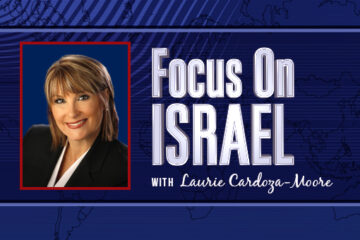Leading professional association of Christian communicators opposes unlawful silencing of churches, charities on candidates and electoral issues
The National Religious Broadcasters (NRB) association—a nonpartisan, international association of Christian communicators whose member organizations represent hundreds of millions of listeners, viewers, and readers—has joined with First Baptist Church Waskom (Waskom, Texas), Intercessors for America (Purcellville, Va.), and Sand Springs Church (Athens, Texas) to file a complaint challenging the Johnson Amendment’s restrictions on the First Amendment freedoms of nonprofit organizations, including churches. The case was filed in the United States District Court for the Eastern District of Texas in Tyler, Texas. Both churches are located in the Eastern District of Texas. View the full complaint here.
“For too long, churches have been instructed to remain silent on pressing matters of conscience and conviction during election season or risk their 501(c)(3) status,” said NRB President & CEO Troy A. Miller. “We believe that all nonprofits should have the constitutional right to freely express their point of view on candidates, elections, and issues on the ballot. Our challenge to the Johnson Amendment is about securing the future of free expression for all Americans, particularly those standing in the pulpit.”
“The Johnson Amendment has long been applied in a discriminatory manner that respects the First Amendment freedoms of some, but not of others,” said NRB general counsel Michael Farris. “Our intent is to vindicate the right of every church and religious nonprofit to express what their faith teaches on every issue, including political matters, as is their right and their duty.”
Plaintiffs are making no attempt to obtain a decision prior to the 2024 election. They are not filing a motion for a preliminary injunction or any other motion to expedite the litigation. They do not expect any hearings in the matter prior to the 2024 election. Some plaintiffs are not seeking the ability to formally endorse or oppose political candidates, and the complaint does not challenge limits on lobbying activity by 501(c)(3) nonprofits or the restriction on donating directly to political candidates.
All plaintiffs in this suit are religious nonprofits in the business of communicating viewpoints informed by the Christian faith to the public. Under the Internal Revenue Code (IRC) as interpreted and enforced by the Internal Revenue Service (IRS), they are not free to express their views about political candidates. In its complaint, plaintiffs argue that their speech has been wrongfully silenced under the language known as the Johnson Amendment, which prohibits 501(c)(3) nonprofits from supporting or opposing candidates for public office, including restrictions against comparing the positions of candidates to the positions of the organization.
The complaint details the fact that many 501(c)(3) organizations engage in electoral activities that are open, obvious, and well-known, yet the IRS allows some, but not all, such organizations to do so without penalty. At this time, the IRS has no apparent rational basis for determining which 501(c)(3) organizations will be permitted to speak freely and which will be penalized for violating the Johnson Amendment; it acts in an arbitrary and capricious manner vis-à-vis electoral statements by nonprofit organizations. Moreover, the complaint argues that the IRS operates in a manner that disfavors conservative organizations and conservative, religious organizations in its enforcement of § 501(c)(3), constituting a denial of both religious freedom and equal protection.
Troy A. Miller, President and CEO, National Religious Broadcasters – www.nrb.org














